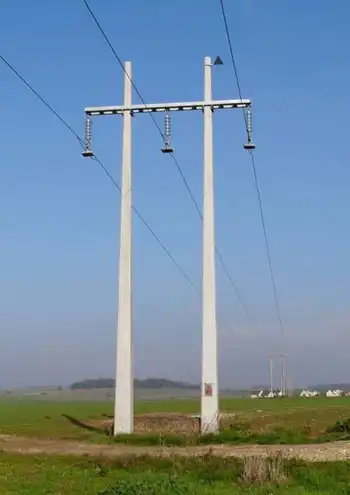Regulators throw a curve at SmartGridCity
By GreenTech Media
Arc Flash Training - CSA Z462 Electrical Safety
Our customized live online or in‑person group training can be delivered to your staff at your location.

- Live Online
- 6 hours Instructor-led
- Group Training Available
At stake is the ability of Xcel Energy's Public Service Company of Colorado to earn back more than $7 million already invested in SGC startup costs plus many millions more already committed in buildout and operating expenses.
The completion of SGC, the most visible smart grid project in the U.S., could be canceled or delayed if Xcel is unable to pass its development cost on to ratepayers. That's because risk-averse investors would balk at the alternative: putting those costs on Xcel's balance sheet. Xcel sought millions in funds from smart grid vendors to participate in the project.
Several of Xcel's technology partners in the SGC project were contacted about the ruling. They either didn't return calls or declined to discuss the situation on the record. PS Colorado spokesman Tom Henley declined to make any company officials available for an interview, and PUC Spokesman Terry Bote didn't answer a request for more information.
In its December 24, 2009, order, the Colorado Public Utilities Commission made the kind of two-handed pronouncement that keeps utility executives sleepless and utility attorneys employed.
On the one, it approves PS Colorado's request to recover from ratepayers about $7 million in expenses made so far on SGC. On the other, it tells the utility it will have to refund that money if it fails to apply for and obtain a "Certificate of Public Convenience and Necessity" authorizing the project.
The commissioners rejected a consensus agreement by rate-case participants in which they describe SGC as a enhancement to the electrical distribution system serving Boulder. Historically, utilities have been able to make local distribution investments without first obtaining a certificate.
PS Colorado on January 13 signaled it would ask the PUC to reconsider its directive. Regardless of the decision on that request, the utility asked for a delay in the January 24 deadline for requesting the certificate.
In issuing the directive, the PUC in effect equates the construction of SGC to building a new power plant or trunk transmission line.
Obtaining a certificate is a regulatory process in which the costs of a major capital project are scrutinized based on how well they meet standards of "prudency" and "public interest". The positions of interested parties — especially residential, commercial and industrial customers of the sponsoring utility and the commission's professional staff — receive considerable deference in the process. Impacts on contractors, vendors and other economic stakeholders also are evaluated.
In general, once a certificate is issued, the utility can add the project costs to its "rate base," meaning it can recoup them, with carrying costs, from customers.
The process can get contentious and protracted, especially with high-visibility projects such as SGC, which PS Colorado's Henley says is getting "upwards of $100 million" of investment by the utility and its smart-grid partners. PS Colorado so far has disclosed $2.8 million in 2009 SGC startup expenses plus SGC operational expenses of $4.1 million in 2010.
Influential parties in the rate case — among them the commission's consumer-protection division and the Boulder city government — agitated for a certificate proceeding to provide an up-close examination of SGC's finances. The city argues that "the cost and magnitude of the proposed investment in SmartGridCity, coupled with its experimental character, are compelling reasons" to require a separate proceeding.
Of particular importance to smart-grid technology developers, both the city and commission staff want to know more about how ratepayers would benefit from intellectual-property rights developed in the course of building out SGC.
In its decision, the commissioners are recognizing that substantial implementation of SGC has already taken place in Boulder. As of the new year, Xcel said it had completed construction of the infrastructure and launched the remaining software to enable all SGC operational functions.
Boulder customers using GridPoint-supplied technology are now able to access their demand profiles on a next-day basis.
PS Colorado in November filed with the PUC for a SGC pricing pilot program, covering up to 2,000 customers and allowing them to opt into time-of-use rates and shift their demand to lower-cost periods. That request won't be acted on until later in 2010.
But the regulators have made it clear that, as desirable as SGC may be from a social, environmental and technological point of view, as a matter of policy they consider it to be neither business-as-usual nor a simple investment in electricity distribution. That, as far as they're concerned, warrants a closer look.
In a separate development, Sandy Simon, one of the leaders of SGC, is leaving the project to become president of global technology and systems at EnergyGrid Networks.















